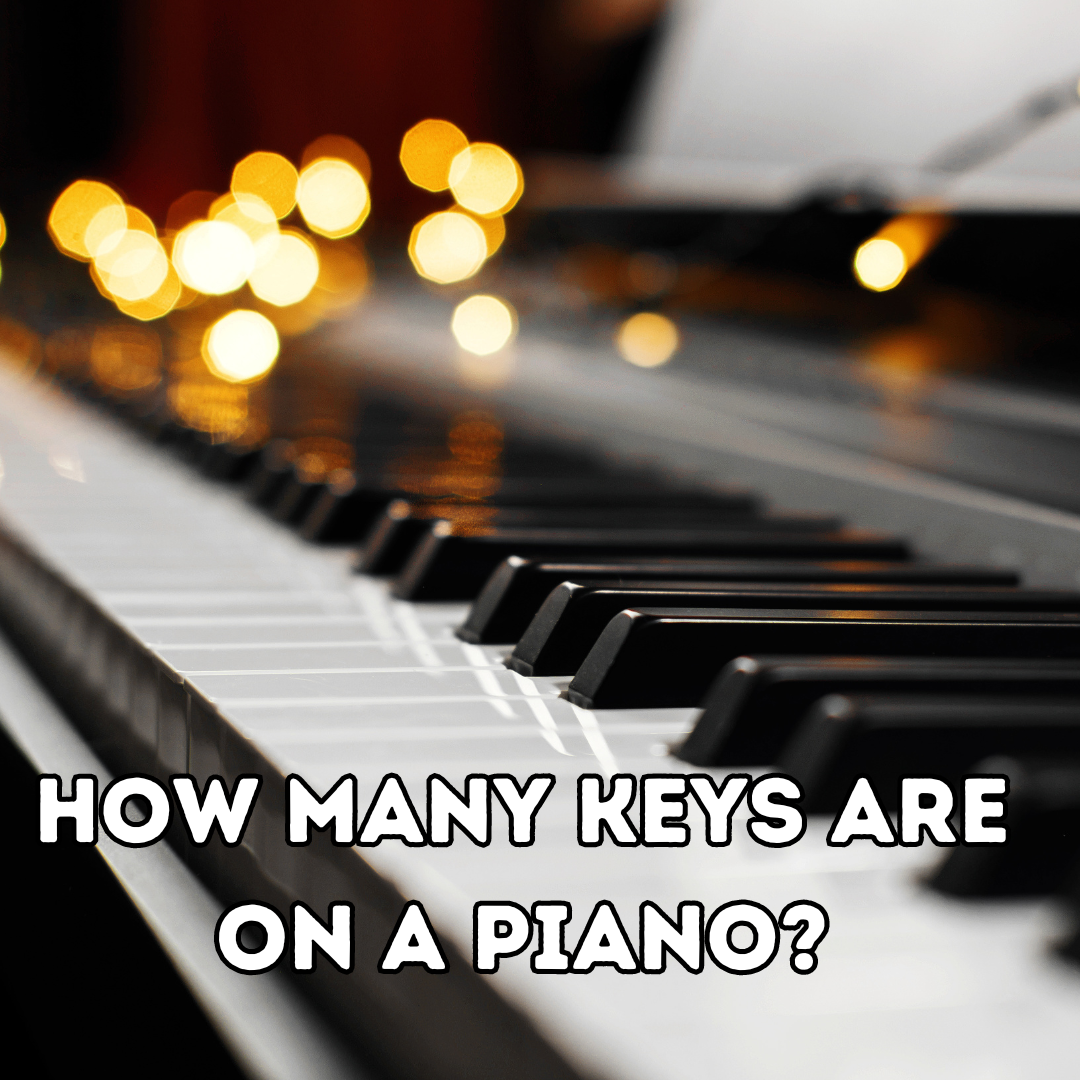How Many Keys Are on a Piano?
Pianos have been a cornerstone of music for centuries, enchanting listeners and inspiring musicians across the globe. Whether you're an aspiring pianist or a seasoned player, understanding the anatomy of a piano is fundamental to mastering the instrument. One of the most common questions asked by beginners is, “How many keys are on a piano?”
This question may seem straightforward, but the answer holds the key (pun intended) to understanding the range and versatility of this magnificent instrument. In this article, we’ll dive deep into the topic, exploring the number of keys on a piano, the historical evolution of the keyboard, and why it matters to you as a pianist.
The Standard Piano: 88 Keys
Most modern pianos have 88 keys. This standard was established in the late 19th century by Steinway & Sons, a renowned piano manufacturing company. The 88-key keyboard is divided into 52 white keys and 36 black keys, giving musicians a seven-octave range plus three additional notes (A, B, and C). These keys cover a wide range of notes from A0, the lowest note, to C8, the highest.
Why 88 keys? The answer lies in the demands of composers and the evolution of music over time. Early pianos had fewer keys, but as the instrument evolved and music became more complex, there was a need for a broader range. The addition of keys allowed composers to write music that explored new tonalities and emotional depths, ultimately leading to the 88-key piano that is now the gold standard.
A Brief History of the Piano Keyboard
The piano’s development over the centuries led to the establishment of the 88-key standard. In the early 1700s, the first pianos were created by Bartolomeo Cristofori in Italy. These early instruments had only 49 keys. The expansion of the keyboard began in the 18th and 19th centuries, driven by the needs of composers like Beethoven, Chopin, and Liszt, who were exploring more complex harmonies and larger dynamic ranges in their compositions.
By the mid-19th century, 85-key pianos were common, but Steinway & Sons introduced the 88-key piano in the 1880s. This design has become the norm, allowing pianists to perform a vast repertoire of music that spans genres and eras.
Variations in the Number of Keys
While 88 keys are the standard, not all pianos adhere to this number. Here are some variations you may encounter:
Digital Pianos and Keyboards: Digital pianos and keyboards often come with fewer keys, ranging from 25 to 76. These instruments are designed for portability and may be suitable for beginners or those with limited space. However, the reduced number of keys can limit the repertoire a pianist can play.
Smaller Acoustic Pianos: Some smaller acoustic pianos, such as spinets or uprights, may have fewer than 88 keys. These instruments are often more compact and are designed for home use.
Extended Range Pianos: On the other end of the spectrum, there are pianos with more than 88 keys. For example, the Bösendorfer Imperial Grand Piano has 97 keys, extending the lower range down to a low C. These extra keys are often used to enhance the bass notes in certain classical compositions.
Custom Pianos: Some custom pianos have been made with even more keys, though these are rare. These instruments are usually commissioned by specific composers or institutions with unique musical requirements.
Why the Number of Keys Matters
Understanding the number of keys on a piano is essential for both beginners and advanced players. Here’s why it matters:
Repertoire: The number of keys determines the range of music you can play. An 88-key piano allows you to perform the complete classical repertoire as well as most contemporary music. With fewer keys, you may find certain pieces unplayable, as they require notes outside the range of your instrument.
Technique Development: Learning to play on a full-sized keyboard helps develop proper technique, particularly for hand positioning and finger strength. It also helps you become accustomed to the full range of the instrument, making it easier to transition to different pianos.
Expressiveness: The additional keys on an 88-key piano provide greater expressiveness. Lower bass notes add depth, while the higher treble notes offer brightness and clarity. This range allows for a more nuanced performance, especially in classical music.
Future-Proofing: Starting with an 88-key piano ensures that as you progress, you won’t outgrow your instrument. Investing in a full-sized piano from the beginning means you’ll be able to tackle more complex and diverse compositions as your skills improve.
Choosing the Right Piano
When deciding on a piano, the number of keys is an important consideration, but it's not the only factor. Here are a few tips to help you choose the right piano for your needs:
Purpose and Skill Level: If you’re a beginner, a smaller digital keyboard with 61 or 76 keys might suffice. However, if you’re serious about learning piano and want to progress, an 88-key instrument is the best choice.
Space and Budget: Consider the space you have available and your budget. Acoustic pianos take up more space and can be expensive, while digital pianos are more affordable and portable. However, ensure that your choice has a realistic touch and sound.
Future Goals: Think about your long-term goals as a pianist. If you plan to play a wide range of music, including classical, jazz, and contemporary pieces, investing in a full-sized 88-key piano is a wise decision.
Conclusion
Understanding how many keys are on a piano is a fundamental part of learning the instrument. Whether you’re a beginner or an experienced player, knowing that the standard piano has 88 keys and why this number matters can help you make informed decisions about your musical journey. While there are variations in the number of keys, an 88-key piano remains the gold standard, offering a wide range and expressiveness that is unmatched.
If you’re serious about learning piano and want to explore its full potential, starting with a standard 88-key piano is the best way forward.
At NUVO Music School, we offer comprehensive piano lessons tailored to help you master the instrument, whether you’re just beginning or looking to refine your skills. Our experienced instructors will guide you every step of the way, ensuring that you get the most out of your piano journey.
Enroll today and start playing the music you’ve always dreamed of!

